2023: My Year in Reading
I read 25 books in 2023; these are my favorites, recommendations, and thoughts.
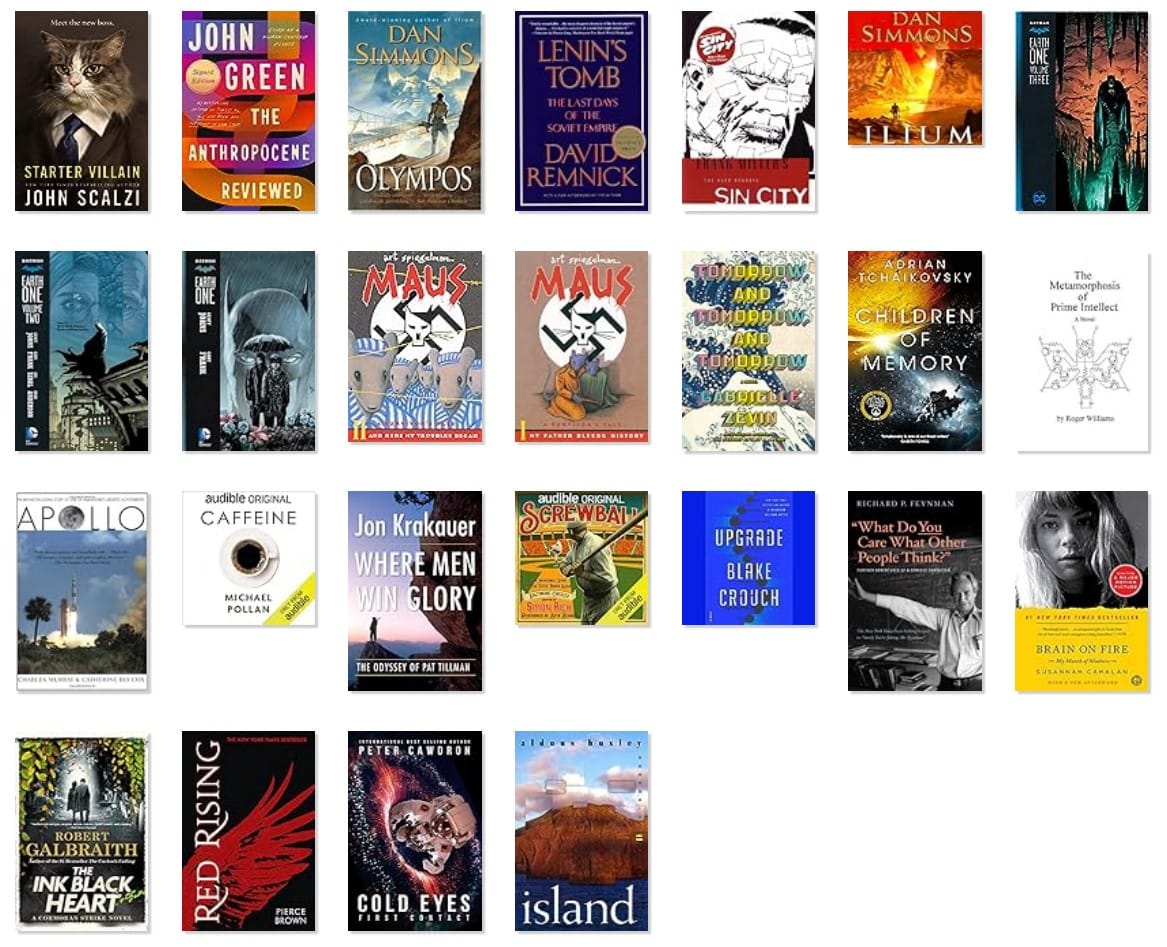
If you're new to this series: At the end of each year, I like to take some time to reflect on what I read over the past year and share some recommendations. I'll admit that this is mostly for my own sake, because part of the fun of reading is going back and thinking about what I liked and didn't like in retrospect, but perhaps you might find this as a source of inspiration for your own reading.
And, characteristically, I'm reflecting on 2023 about seven months after it finished. But hey, we got there.
Along with each recommendation, I'll include a link to the book's Amazon listing along with other similar books, and please note that I earn a small referral commission if you decide to purchase a book via those links. If you'd prefer to get your books elsewhere, including from many wonderful free options like your local library, please do!
Let's get started.
Learned the most
The more I read, the more I recognize that the books I enjoy the most are the ones that tickle my curiosity. This year was no exception, so I'm going to share a few that stood out across a few different made-up categories.
Learned the most (Space edition)
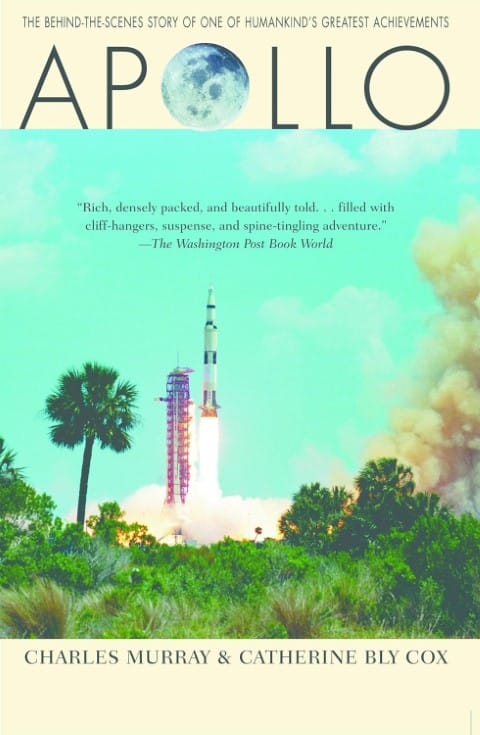
Apollo: The Race to the Moon by Charles Murray, Catherine Bly Cox
This book was incredible. I bought it years ago when it was on sale because of its high ratings, but I kinda forgot about it until I was looking for something to read in my anti-library. And wow, this book was really great.
I've only read a few books about the history of manned space flight, like Michael Collins' excellent Carrying the Fire (which I Very Much Liked and featured in my 2014 Year in Reading list) and more recently, Todd Zwillich's The Man Who Knew The Way to the Moon (which I Very Much Did Not Like), and I suppose Richard Feynman's What Do You Care What Other People Think? (also featured in this year's reading list!) which, among many things, covered the 1986 Challenger disaster.
This book was an excellent macro view of the entire Apollo program, and understandably focused on several key moments like the Apollo 1 fire, the Apollo 11 moon landing, and the Apollo 13 incident. I especially liked that it included so many POVs from individuals working at NASA and related companies and agencies - I felt like I really got a picture of their unique perspectives, and as an engineer, I am obsessively curious about how these folks managed such complex programs. Over the years, I've tapped books like this as a way to learn operational best practices that apply directly to my own (much less life-and-death) work.
There's way too much in this book to do any justice with this review, so I'll mention just a few things that I still have on my mind afterwards:
The Apollo 13 accident was an especially interesting section of this book. I was so engaged by this section that I decided to rewatch Ron Howard's excellent Apollo 13 (1995) before I even finished the book, which ended up being a nice visual companion (despite taking plenty of creative liberties with the facts).
One thing that especially stuck with me was from one of the afterwords (I don't recall if it was from the 20th anniversary of the book or the 50th since both were included in my edition) which included follow-up interviews from many of the engineers and personnel who were key players in the Apollo program. When reflecting back on their work in the Apollo program decades later, although they were intensely proud, they felt remorseful for missing their children growing up, and leaving their spouses at home alone for months at a time. I think there's something really important in there: they saw their roles as being pivotal to the success of the program, but in hindsight, they realized that all the notoriety in the world and incredible feats of engineering won't bring back lost time with their children and families. I'm proactively taking that as a key lesson for my own life.
Learned the most (Humanity edition)
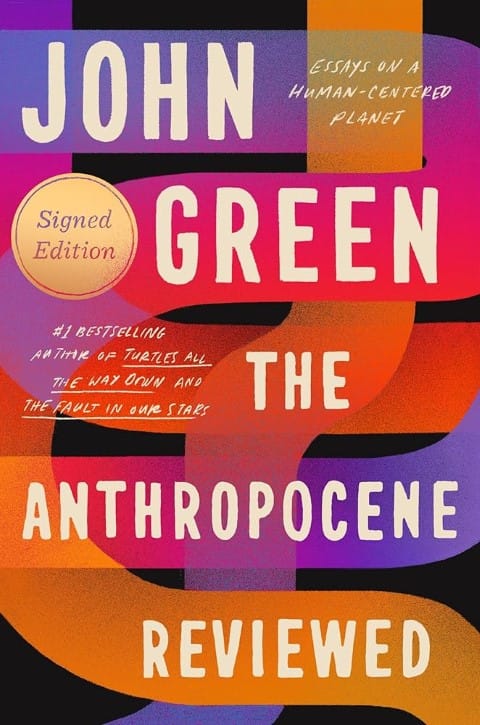
The Anthropocene Reviewed by John Green
The Anthropocene is a term used to describe our current times in a geologic time scale, kinda like Cretaceous, Jurassic, Triassic, etc. Well, I should say it was a term used to describe our current times, because in 2024 some buzzkills at the International Commission on Stratigraphy and the International Union of Geological Sciences rejected it as the formal designation for our current epoch, so now we're stuck in the Holocene Epoch like a bunch of chumps.
Anyway, The Anthropocene Reviewed was right up my alley and was an easy choice for this list. It very much reminded me of Bill Bryson's A Short History of Nearly Everything and At Home: A Short History of Private Life (which I featured in my 2021 Year of Reading list), and this was very much in that same vein: breadth over depth, with every chapter exploring some completely different aspect of human life. It was all delightful, with some chapters being whimsical explorations of some facet of everyday existence, and others being poignant and thoughtful reflections on humanity itself.
I've never read any of John Green's other books like The Fault in Our Stars and Turtles All the Way Down (which likely puts me in the minority, since I'm sure fans of his very popular fiction books likely checked this out because they were familiar with him), and I'm super impressed - I'll probably check out his fiction in the near future as well. And heck, if he puts out more stuff like this, I'll read those for sure.
Learned the most (Holocaust edition)
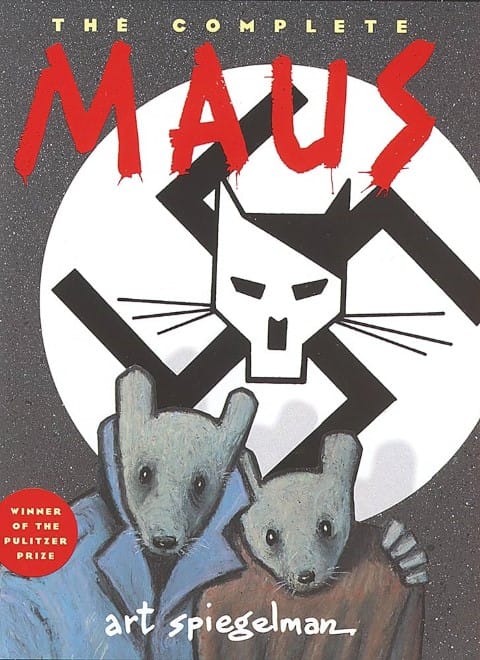
Maus (Volumes I and II) by Art Spiegelman
Maus is a two-volume graphic novel by Art Spiegelman, which he created based on hours of conversations with his father Vladek who was a Holocaust survivor.
I was blown away by Maus. I knew of it through reputation and meant to check it out someday, and my mother bought me the boxed set (both volumes, plus some supplemental material) on a recent trip back to my hometown.
I was initially a bit thrown off by the simplistic, black-and-white art style, but it really grew on me and now I find it to be beautiful in its own way. And I also loved that, even though all of the characters in this book are drawn as mice and cats and pigs, they were all clearly written as humans, not animals.
Coincidentally, my wife and I have been slowly (over four years!) watching the 100 highest-rated movies of all time, and in 2023 we watched Steven Spielberg's Schindler's List (1993) and the 9.5-hour-long Holocaust documentary Shoah (1985), but I think Maus really made me appreciate these events the most deeply, especially as they were told through the eyes of the author's father's experiences.
I'd definitely read this again, even though was difficult to read at times.
Accidentally learned the most (Greek Classics edition)
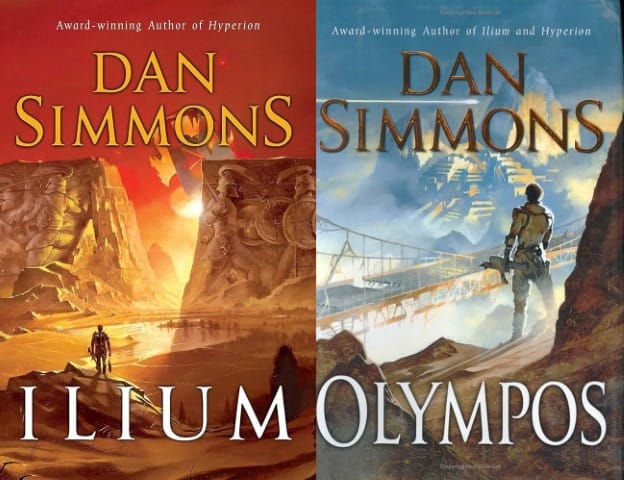
Ilium and Olympus by Dan Simmons
Ilium and Olympos are a two-book series of science fiction novels written by Dan Simmons, recreating an alternate version of Homer's Iliad but set on Mars and Earth.
I really loved these books - I was already a huge fan of Dan Simmons's Hyperion Cantos series, and I'm really glad I checked out the Ilium series after a recommendation from a coworker.
The premise of this book is super interesting: I won't share much about it here because it's kinda fun experiencing it first-hand, but let's just say this is the first (and perhaps only) time in my life I found myself regretting never having read any Homer. But, it wasn't a big deal; while I think I followed about 5% of the Greek mythos in these books, it was pretty easy to muscle through those parts (but if you have read Homer, I think you'd enjoy this much more). I also loved how there wasn't a lot of context-setting: you just get dropped into the multiple storylines in this book cold, and get to figure out what the heck is going on along the way.
I'd definitely re-read this again in the future.
Learned the most (Brains are amazing and terrifying edition)
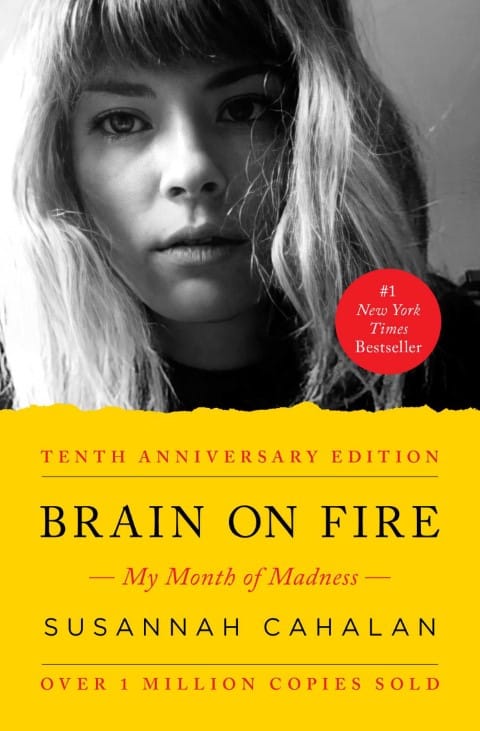
Brain on Fire: My Month of Madness by Susannah Cahalan
This book was absolutely fascinating. I love reading medical memoirs (like When the Air Hits Your Brain by Frank Vertosick Jr. which I featured in my 2022 Year in Reading list, and two books that I featured in my 2022 Year in Reading list: Atul Gawande's Complications: A Surgeon's Notes on an Imperfect Science and Henry Marsh's Do No Harm: Stories of Life, Death, and Brain Surgery), but these were all written by doctors speaking from their own POVs. Brain on Fire was especially compelling as an account of a normal person who went through a devastating brain disease first-hand (and even more because of her background as a writer). I tore through this book in about a week, and I really liked that the chapters were short and punchy - it made it very easy to pick up and put down in small gaps of free time.
Coincidentally while reading this book, I was on my second week of dealing with a gnarly respiratory virus, and it gave me some really interesting (and scary) perspective like, "what if my immune system went haywire over something like this and attacked my organs?". It wasn't lost on me that most of the unpleasant symptoms I was dealing with were the result of my immune system doing its thing, and not solely the virus. As with every book I've read about neurology and mental illness, I left with a much greater appreciation for the delicate balance of biology and chemistry that gives us our personalities, consciousness, and realities – and a little more fearful about how quickly those can change.
I read the ten-year anniversary edition of this book, with a new afterword by the author, and I'm glad she shared her perspective being a decade beyond this incident. It's clear that some of the trauma and fear never really goes away, but also powerful that she recognizes the significant impact her story had on the medical community with this disease previously being nearly unheard of, to now being something that is frequently screened in emergency rooms.
Learned the most (The horrors of war edition)
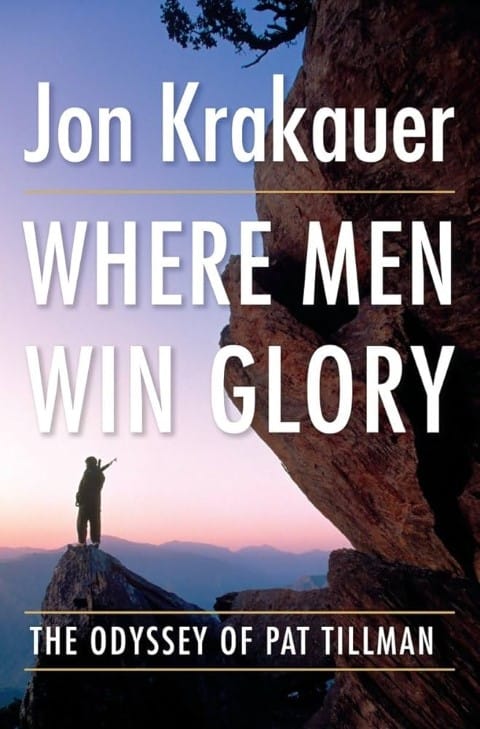
Where Men Win Glory: The Odyssey of Pat Tillman by Jon Krakauer
This was an incredible book and I'm very glad I read it, although it affected me more than I expected and still echoed in my mind months after I finished reading it.
It's interesting reflecting back on why I decided to read this book in the first place: Sure, I'm a big Jon Krakauer fan (I loved Into Thin Air, and high-end-of-liked Into the Wild), but I had never heard of this book nor Pat Tillman. I watch like one football game each year (the Super Bowl) and when I watched the February 2023 game I saw a segment on Pat Tillman and that there was some sort of foundation in his name, and that he had voluntarily left a highly lucrative professional football career to go serve his country in the Army Rangers in the post-9/11 war in Afghanistan, and that he died in combat as a war hero.
I thought to myself: Wow, this person sounds incredible, I've gotta learn more.
So I pulled up Pat Tillman's Wikipedia page and was shocked to learn that he was killed by friendly fire, a significant cover-up had taken place in the US military with the apparent goal of trying to suppress the fact that it was friendly fire, and that before his death, Pat had become disillusioned in the war because of his first-hand experiences. I had to learn more, hence this book.
A few of my main takeaways:
Pat was a remarkable individual. Incredibly driven, smart, super curious, and had some deep philosophies that would typically belong to a much more experienced person. I like to think about there being this false-dichotomy spectrum of "missionaries" vs. "mercenaries", and he was surely the former, most aptly demonstrated during his professional football career where he turned down a $9.6 million contract to stay with a team that he cared more about for $512,000 (and not to mention the massive further pay cut he took when he joined the Army, and being stationed overseas and having to leave his wife behind shortly after getting married).
Reading this book, and especially the excerpts from Pat's journal, made me imagine the person he might have been if he had survived the war. He had such interesting and strong convictions, but he was also young and inexperienced; he knew he was making mistakes and was ignorant, but was open-minded and wanted to improve. I think a lot of his sharp edges were worn down by his experiences at war (in a good way) and I suspect the post-war version of him would have done great good in the world. I found myself highlighting most of his journal entries because it was so fascinating to read his thoughts directly.
And finally, I had forgotten most of what I ever knew about the US's post-9/11 wars in Iraq and Afghanistan, and this book really dredged up a lot of personal frustration. I know this book just presents one opinionated view on it, but wow, there were some very bad and straight-up immoral things being done in the US government and military at this time. I won't try to paraphrase - the book does this in brutal detail - but suffice to say it reminded me of the ulterior motives, the bad decision making, and the pathological lies and deception that took place from those who were leading the US at this time. All of this further worsened by the multiple instances in this book where the US military tried to cover up or aggressively spin legitimately bad situations, ultimately culminating in trying to cover up Pat Tillman's own death by friendly fire.
Learned the most (I wish I could have hung out with Richard Feynman in real life edition)
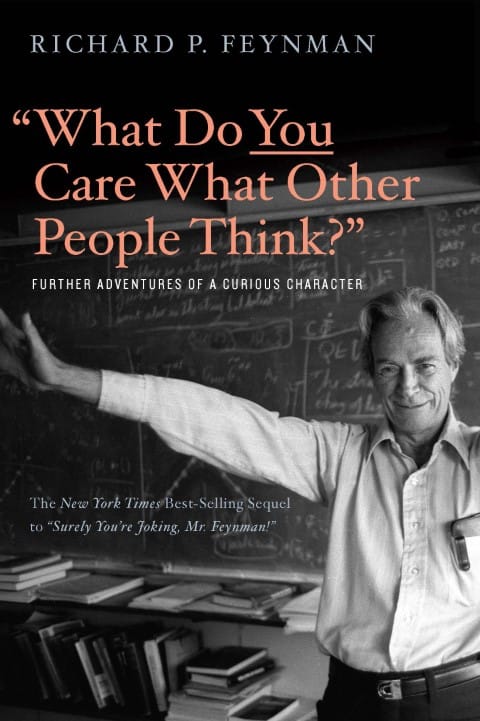
"What Do You Care What Other People Think?": Further Adventures of a Curious Character by Richard Feynman, Ralph Leighton
I usually go on reading kicks in a specific genre for a few books at a time, and a little over ten years ago, I started reading books by a few of the "great science communicators" like Neil deGrasse Tyson's Death by Black Hole: And Other Cosmic Quandaries, Michio Kaku's Physics of the Impossible, and Richard Feynman's Surely You're Joking, Mr. Feynman!: Adventures of a Curious Character. Feynman's book in particular stuck with me, so I proactively picked up a copy of his later book (published in 1988) "What Do You Care What Other People Think?": Further Adventures of a Curious Character...
...and then never read it.
So there I was, 35 years after the book's publication, and something like a decade after I purchased it, and finally closed the loop. At least I'm taking that whole anti-library thing seriously.
I enjoyed this book. It's a bit different than his earlier book Surely You're Joking, Mr. Feynman! because it was sourced from recorded audio conversations that Feynman had with his friend Ralph Leighton (who was credited as co-author), so it jumps around a lot and has some of the Ralph's POV intertwined with Feynman's. But it was very much Feynman, idiosyncrasies and all.
A few things that stood out to me in retrospect:
I don't recall learning anything about Feynman's first wife, Arline, prior to reading this book, and it was poignant and sad. I was amazed by his dedication in seeing her and caring for her through her terminal illness (including some ridiculousness with having multiple flat tires and hitchhiking!), while juggling Manhattan Project work, as well as his role as an advocate for her as doctors struggled to understand the cause of her illness. It's especially interesting hearing Feynman tell this story through distant memory at the end of his own life, as it's a combination of distantly pragmatic as well as deeply painful.
The chapters on the 1986 Challenger disaster were also interesting, mainly in terms of his palpable frustration with government bureaucracy and his purist's views on engineering ethics. Overall, I respect how he navigated it and how he held a strong position, but it also struck me that with perhaps a bit more tact, he probably could have better navigated some of those situations rather than just having weathered them. But, I say that as a person who has never had to do anything substantial in government work, so I'm sure I'm underestimating the challenge.
And finally, a few comments that especially got lodged in my brain were from others about Feynman (not provided by Feynman, but recorded by Ralph Leighton, the co-author of this book). I think we all end up a bit two-dimensional to others, but I really liked this one in particular from Freeman Dyson (emphasis mine).
Feynman is a man for whom I am developing a considerable admiration; [...] He is always sizzling with new ideas, most of which are more spectacular than helpful and hardly any of which get very far before some newer inspiration eclipses them.
His most valuable contribution to physics is as a sustainer of morale; when he bursts into the room with his latest brain wave and proceeds to expound it with lavish sound effects and waving about of the arms, life at least is not dull.
And honestly, I very much hope to attain similar reviews during my own journey.
Other Notable Mentions
Ok, so I was clearly the most jazzed about the books above that taught me something new. But there were some other great books I read this year, so I'll do a few quick hits:
I will probably keep reading the Cormoran Strike detective series forever (and that's a good thing)
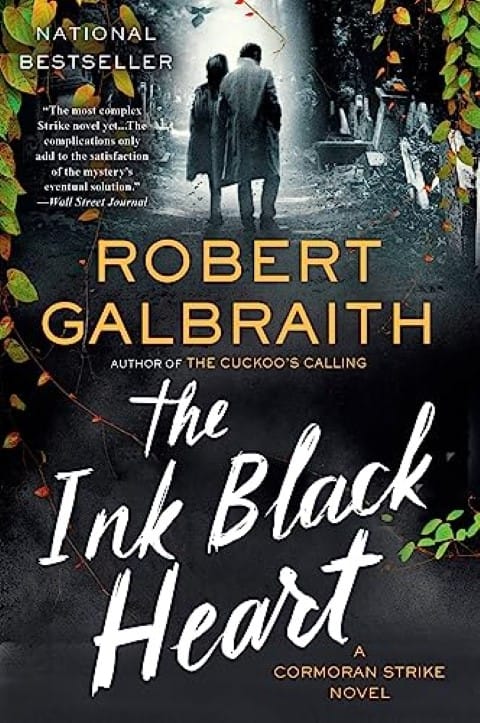
The Ink Black Heart by Robert Galbraith
This is the sixth installment in the Cormoran Strike detective series, and looking back at my reviews of the series, I've given them all 5 stars aside from one. The Ink Black Heart is another easy 5-star for me.
I wasn't sure what to think about the chat room dialogue mechanic in this book at first, and it was pretty cumbersome on the Kindle format (seriously, they really need to improve flexibility for non-traditional text elements or something), but after getting into it, it was a unique and engaging storytelling approach.
Overall, I loved this one as much as all of the others in the series, and although the ending wasn't perhaps the most satisfying, the journey leading up to it very much made up for it. I'll continue reading these as long as they keep getting published!
A Pleasant Surprise
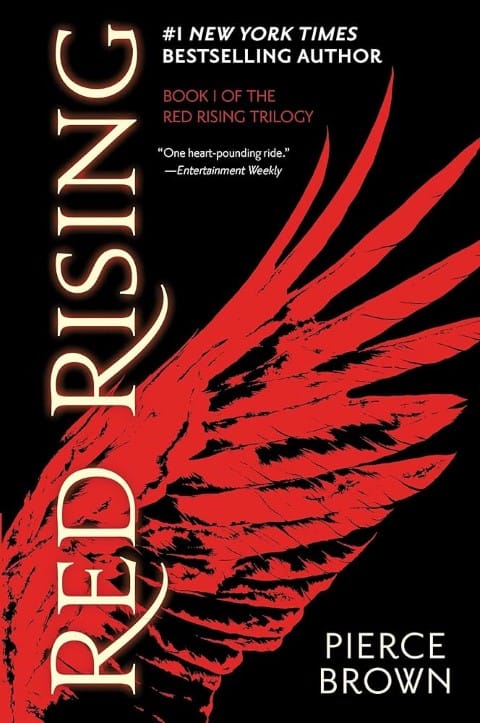
Red Rising by Pierce Brown
I enjoyed the heck out of Red Rising and looked forward to reading it every day.
Yeah, it's a little Hunger Games-y and a little Enders Game-sy, maybe a bit Dune-y and a bunch of other things, but in my view, it was still solidly unique and stood on its own ground. I liked the world-building, the characters were fine, and the story was engaging. While some of the plot lines were predictable, there were some twists that still surprised me. And I love a good tale of vengeance.
Great Hard Science Fiction
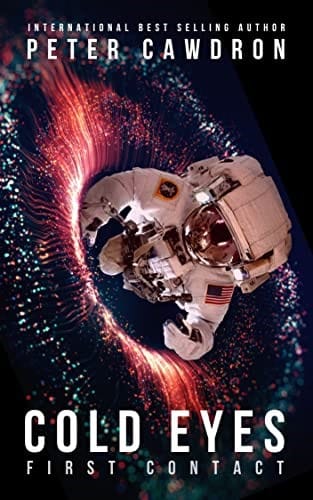
Cold Eyes by Peter Cawdron
I liked Cold Eyes and am glad I gave it a try on a whim. It had some of the same hard-science-alien-contact stuff that I really liked from other books like The Three-Body Problem (although Cold Eyes didn't quite punch at that weight) and Project Hail Mary (very similar, and was featured in my 2021 Year in Reading list). I'll probably check out other books in the First Contact series (which is a huge series of 28 science fiction books by Peter Cawdron, but are loosely related and I'm told can be read in any order).
Graphic Novels
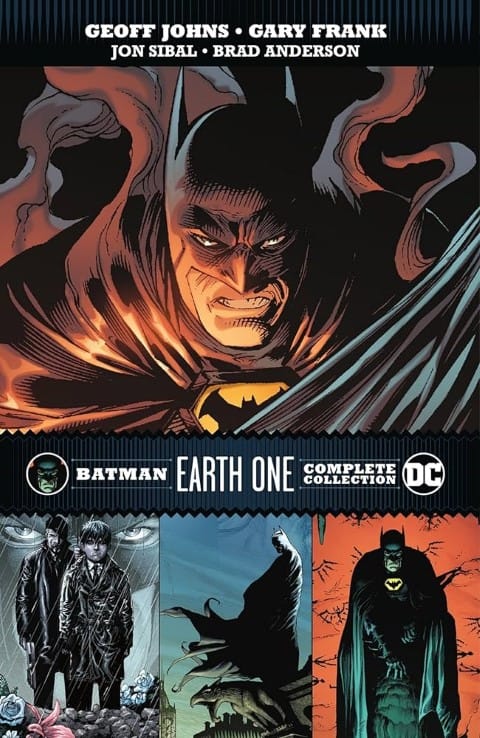
Batman: Earth One (three-volume series) by Geoff Johns, Gary Frank
I haven't read a ton of Batman comics - mainly some of the more famous ones that were the basis for the Nolan movies and some of the Frank Miller comics - but this Earth One series was an interesting play on an alternative Batman universe where some of the earlier timeline events are slightly different than the normal canon, and that butterfly effect slowly diverges more substantially across the three-volume series.
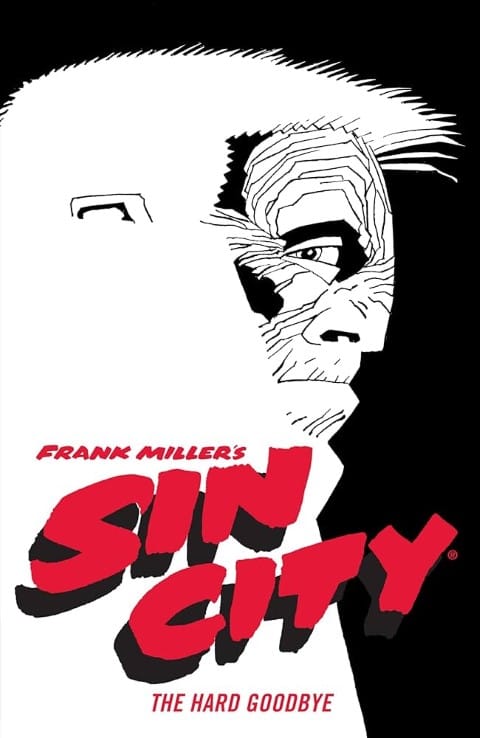
Sin City Volume 1: The Hard Goodbye by Frank Miller
I watched Sin City (the 2005 movie) quite a few times when it first came out in 2005, and wow, that movie really did justice to the source material. I watched a video on YouTube (which inspired me to check out the graphic novel) where they dug into the collaboration that director Robert Rodriguez did with comic creator Frank Miller, including the fact that he basically shot a demo film as a proof of concept and sent it to Frank to show him how he could pull off the visual style. (The follow-up video on Sin City's use of green screen was also super interesting!)
Anyway, this graphic novel has a very unique art style which I really liked, and I'm glad I checked this out. I'll probably go through all of these and then re-watch the movie afterwards.
The books I wouldn't read again
And it's worth mentioning a few that, despite having many merits, simply weren't for me and I wouldn't read again. But hey, maybe you would!
It turns out my curiosity could have been satisfied by the Wikipedia page
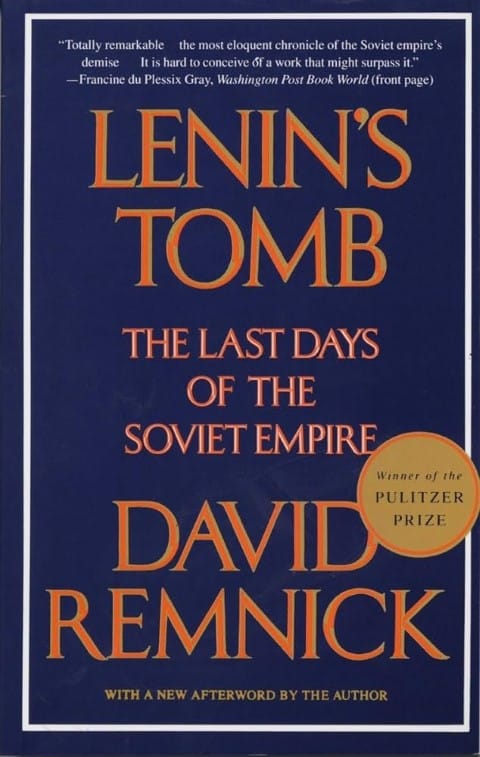
Lenin's Tomb: The Last Days of the Soviet Empire by David Remnick
On objective measures, I should rate this book extremely high: it's incredibly thoroughly researched, and includes extensive anecdotes from people who lived through the waning years of the USSR, and presents firsthand perspective from the author that could only be gleaned by someone truly on the ground during this time. And heck, it won a Pulitzer, and I've heard those are pretty legit. I made over 100 highlights of things I found interesting which is always a good sign for a book.
But personally, oh-my-goodness, it ended up being such a slog. I was excited to check this out because I knew next to nothing about the history of the USSR, and I love going down rabbit holes like this, but after 5 months of continuous reading, I really came to dread it and the last few weeks of reading were truly a chore.
I think I was most engaged with the first half: I learned a ton about the major players in the last 100+ years of the Soviet Union, and (horrifyingly) the many atrocities committed that I had somehow never heard of – genocides with numbers bigger than I can ever imagine. But as the book drifted from historical summaries into contemporary anecdotes based on interviews, it just became less interesting to me.
In hindsight, I don't regret reading it and there have been a few random shows or movies I've seen since that referenced the USSR, and now I have a better perspective on those events. But a shrewder version of myself probably should've shelved this book about 3 months in and moved onto something more personally interesting to me.
I tried (twice!)
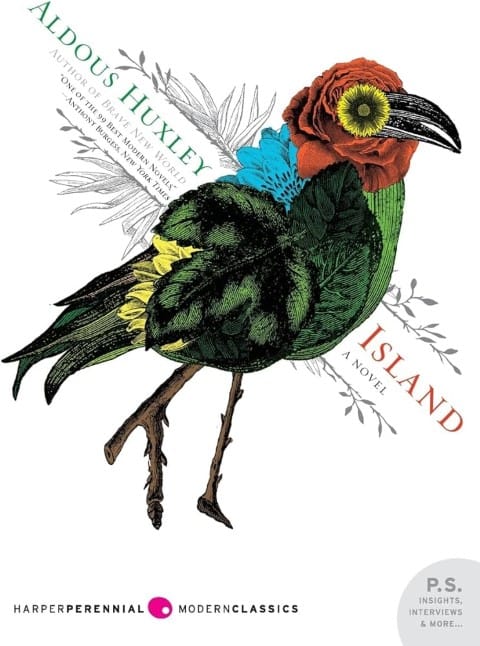
Island by Aldous Huxley
Island was Aldous Huxley's final book before his death, and I was interested to check it out because I enjoyed Brave New World and have read it a few times, and because I had recently read about Huxley's unconventional deathbed request to be blasted into The Great Unknown on a tremendous dose of LSD as he was dying from advanced laryngeal cancer.
Island is an interesting concept: It's obviously a philosophy book, which I knew going into it, and very much read as Huxley's final recommendation for what a utopian society should look like.
Overall though, I just didn't enjoy it very much. Perhaps it was just a timing thing for me personally, but it took me two attempts to get going (where I went back and re-read the first 20% a second time), and I felt like it was a chore to read. The concept was interesting, and I like the whole thin-fiction-heavily-saturated-with-philosophy thing, but I was pretty glad when this one was done, and I probably won't read it again.
That's it for my 2023 reading list highlights. I didn't mention everything I read here, so you can check out my entire 2023 reading list on Goodreads if you want to see more of my reviews and recommendations.
For more posts like this, you should subscribe to my newsletter (it's free!) or check out my previous years' reading lists. You can also add me on Goodreads (so I can steal book recommendations from you).